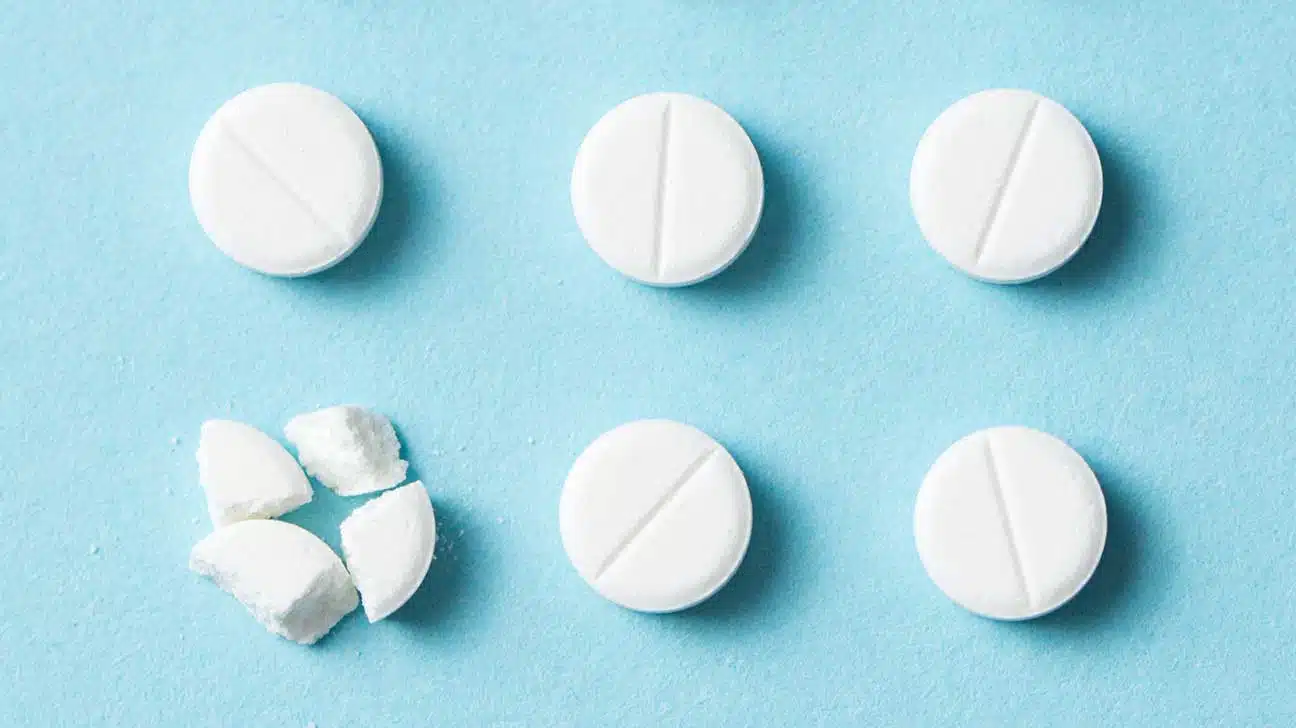
Trazodone is a prescription drug known by the brand names Desyrel and Oleptro. It is used to treat depression, anxiety disorders, and sleep disorders. The drug’s effects may last several hours.
Antidepressants, such as trazodone, are controlled substances that fall under the classification of serotonin antagonists and reuptake inhibitors (SARIs).
While considered safe when used as directed by a qualified healthcare provider, people who engage in trazodone abuse can develop an addiction to the high achieved with higher doses.
The length of a drug high is dependent on many factors including the method of abuse, tolerance level, frequency of use, and more.
How Long Trazodone Lasts
Trazodone works by altering the levels of neurotransmitters in the brain that are responsible for regulating mood, such as serotonin.
The half-life of trazodone is five to nine hours. This means that it takes five to nine hours for half of the trazodone in the body to be eliminated.
The length of time that trazodone’s sedative effects last will vary based on how people are using the drug, their overall health, weight, age, and tolerance to antidepressants.
What A Trazodone High Feels Like
Trazodone is normally prescribed in low doses. When ingested in large doses, trazodone can cause severe sedation and drowsiness, which some people find pleasurable.
Someone abusing trazodone may take the drug in tablet form, or they may resort to other methods of abuse to quickly absorb trazodone into the body and feel its euphoric effects.
Other ways to abuse trazodone include crushing the pills into a powder and snorting them, or rectally inserting a dissolved liquid form of the medication, also called “drug plugging.”
Effects Of A Trazodone High
Serotonin modulators, like trazodone, can work as a sleep aid or help treat mental health disorders, such as schizophrenia, anxiety, and major depressive disorder.
There is a range of physical and mental side effects that may arise when trazodone is abused.
Physical Side Effects Of Trazodone Use
A trazodone high can sometimes be accompanied by physical side effects.
Common short-term effects include:
- headache
- nausea
- constipation
- profuse sweating
- dry mouth
- drop in blood pressure
- changes in appetite
Over time, other dangerous effects may arise such as irregular heartbeat, difficulty breathing, painful erection (priapism), chest pain, and serotonin syndrome, also known as serotonin toxicity.
Increasingly, people are mixing trazodone with cocaine to decrease shakiness and anxiety from cocaine use, but this practice increases the risk of overdose and serotonin syndrome.
How Trazodone Abuse Affects The Brain
Misusing trazodone may also cause an array of mental and behavioral side effects, most notably psychological dependence and intense cravings for the drug.
Other common side effects of trazodone abuse include memory loss, suicidal thoughts, and loss of interest in previously enjoyable activities.
How Long Can Trazodone Be Detected In The Body?
A trazodone high may last up to nine hours, but the amount of time this prescription medication stays in the body will last much longer.
For most people, a single dose of trazodone will remain in the body for one to three days. For older adults, the half-life may be even longer due to reduced metabolism.
If you suspect that someone you care about may be chronically misusing trazodone, a blood test, hair test, saliva drug test, or urine test can approximate when the drug was last used.
Trazodone Withdrawal Symptoms
When someone has developed a dependence on antidepressant medications, such as trazodone, a range of unpleasant withdrawal symptoms may begin once their last dose begins to wear off.
Trazodone withdrawal symptoms may include:
- agitation
- insomnia
- confusion
- irritability
- depressed mood
- sleep disturbances
- psychosis
- nausea
The duration of trazodone withdrawal may vary depending on the severity of the addiction, any instance of polysubstance abuse, and the period of abuse.
A drug tapering program that slowly reduces concentrations of trazodone in the body will help diminish withdrawal symptoms while bringing serotonin levels back to normal.
Treatment Programs For Trazodone Addiction
If you or a loved one are battling substance abuse, help is available at a drug and alcohol rehab center.
Addiction treatment options may include:
- medication-assisted treatment (MAT)
- medically monitored trazodone detox
- outpatient programs
- dual diagnosis treatment for co-occurring disorders
- inpatient treatment
- behavioral therapy
- aftercare services
Getting evidence-based or holistic treatment for trazodone abuse is essential in avoiding a rare but potentially fatal trazodone overdose.
Find Substance Use Disorder Treatment Today
Call our helpline for more information about Trazodone addiction today.
Our team can answer your questions about evidence-based treatment services in your area, or provide a referral for medical advice.
Addiction Resource aims to provide only the most current, accurate information in regards to addiction and addiction treatment, which means we only reference the most credible sources available.
These include peer-reviewed journals, government entities and academic institutions, and leaders in addiction healthcare and advocacy. Learn more about how we safeguard our content by viewing our editorial policy.
- National Institute on Drug Abuse (NIDA)
https://nida.nih.gov/publications/research-reports/misuse-prescription-drugs/overview - National Institute of Health (NIH)
https://www.ncbi.nlm.nih.gov/books/NBK470560/ - PubMed.gov
https://pubmed.ncbi.nlm.nih.gov/10435388/ - U.S. Food and Drug Administration (FDA)
https://www.accessdata.fda.gov/drugsatfda_docs/label/2017/018207s032lbl.pdf


